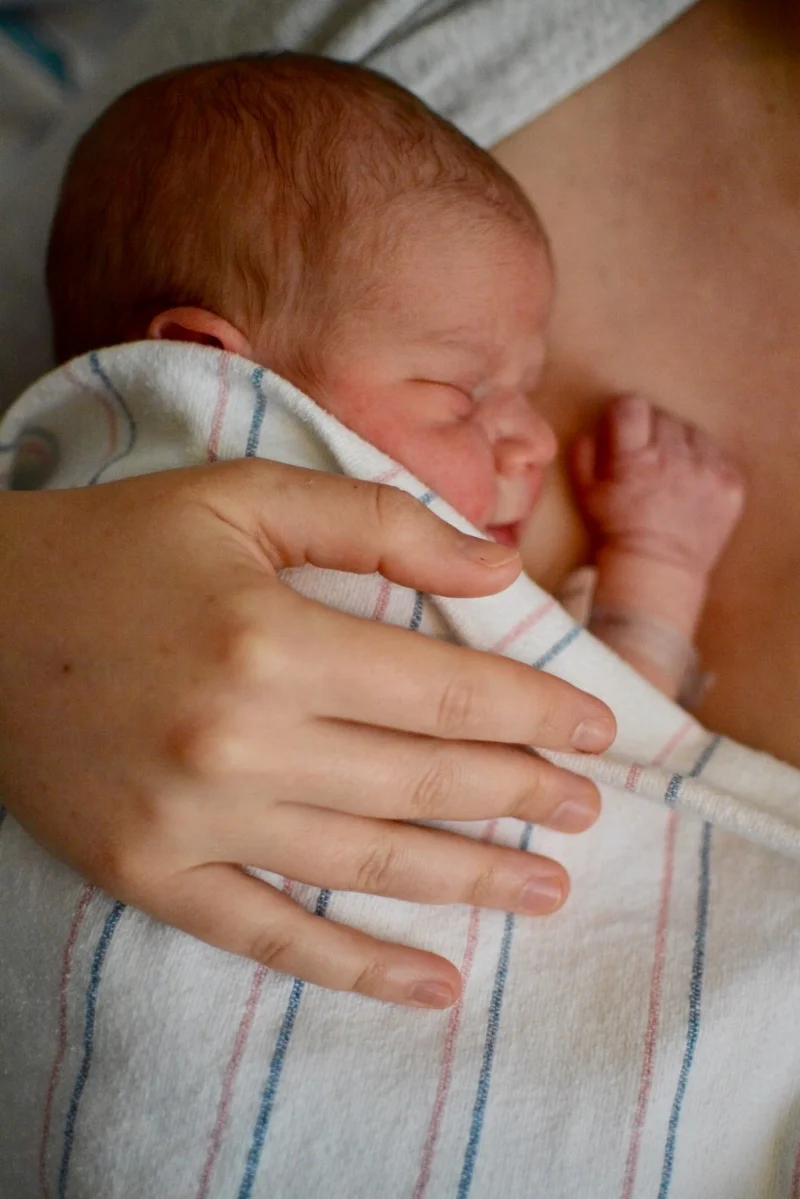Editor's Note: Today we're continuing our focus on surgical/cesarean birth stories in honor of Cesarean Awareness Month. Today's story comes from EmDo Client, Blakely Hildenbrand, and her experience during the birth of her son, Rowan.
My son arrived Earthside via c-section fourteen months ago. My c-section was unexpected - but thankfully not an emergency. After laboring for almost forty hours and pushing for four more, my husband and I were told that our child wasn't going to come out without surgery.
We were devastated. A surgical birth was not what we envisioned or hoped for for the birth of our first child.
We hardly discussed the possibility. I had a healthy and relatively easy pregnancy. I did everything "right" -- I ate well, I exercised, I went to prenatal yoga, I worked with a wonderful and supportive team of midwives and doulas. When the time arrived, my labor progressed, albeit slowly, and my son was doing well throughout. But despite my best efforts and expert guidance from my midwives and doula to turn him around, he was stuck and wasn't going to come out.
After receiving the news that a c-section was the only path forward, my husband and I wept. I had worked so hard and we were so close to meeting our child.
My physical recovery was slow - a c-section, after all, is major surgery. No driving for two weeks, no lifting anything heavier than baby for six weeks, no exercise more strenuous than a light walk for even longer. The weeks-long pain was a constant reminder of how things went "wrong."
More challenging for me was my emotional recovery.
Immediately and for months after my son's birth, I felt like a failure: I was unable to do the one thing that my body was designed to do -- to give birth. I felt like less of a woman, less capable and less deserving of being a mom.
My birth felt like something that happened to me -- not an event in which I played an active role.
I also grieved the loss of a magical first meeting with my son. Instead, I met him through a plastic drape, pumped up with drugs, with people in the room I didn't know, unable to move my body. For almost an hour, I wasn't able to hold my precious child. (My husband cradled him for most of that time.)
I blamed myself for not being able to deliver him vaginally -- what if I had waited longer to go to the hospital? What if I had skipped certain interventions? What if I had taken advantage of others? What if I had tried spinning him one more time? Where did things go wrong? These thoughts were not rooted in reality or in logic, but they persisted for months and months.
I still don't look back on my son's birth with good feelings. My scar doesn't remind me of a smiling face, as an optimistic blogger proposed it should.
I still cringe when a friend or family member (always well-intentioned) says something along the lines of "at least you had a healthy baby" after I share my birth story. I still avoid news articles and slide shows featuring photos of mom looking lovingly into baby's eyes immediately after birth.
But time and more confidence in my role as a mother have begun to heal my physical and emotional wounds.
I have become gentler with myself. The feelings of failure in birth are fleeting. I know we made the best decisions we could have under the circumstances. My son is the joy of my life and mothering him has changed me in profound ways.
Out of this challenging experience has come an incredible little person, a strong relationship with my partner, a supportive community of moms, and a newfound confidence in my ability to nurture and care for my son.
One thing we would have done differently is to prepare ourselves emotionally for this possibility. Like many women, I had hoped for a birth with few interventions. My husband and I hardly discussed surgical births leading up to the delivery. I included a few notes on my birth preferences list in the event of a c-section, but I didn't really consider that one might be required. I felt that by acknowledging the possibility of a surgical birth, I was somehow inviting the possibility.
If you feel the way I did about c-sections, then the best advice I can offer is to give yourself the space to prepare for the possibility--emotionally, physically, logistically--without feeling like you are somehow tempting fate or abandoning your deeply held preferences.
And, of course, to reach out for help after the birth to support your physical and emotional recovery.

